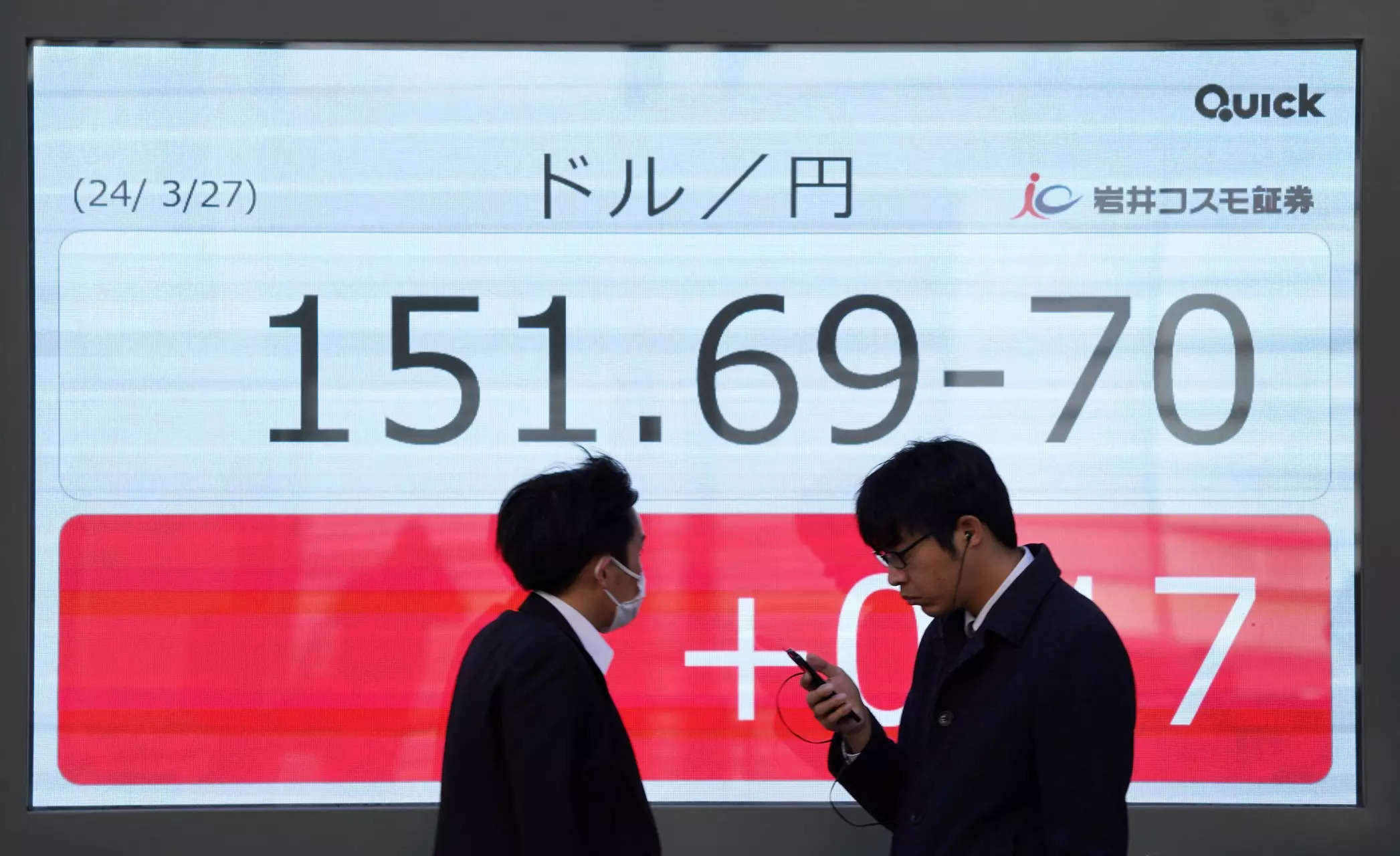Asian stock markets: Asian stock markets fell due to global interest rate fears, and the yen fell to its lowest level in 34 years.

U.S. stock futures fell a further 0.2% after Wall Street fell about 1% overnight, while local bonds bounced after Treasury yields rose 20 basis points overnight to their highest level since November.
MSCI’s largest index of Asia-Pacific shares outside Japan fell 0.7%. Japan’s Nikkei index fell 0.8%.
China’s blue chips fell 0.4%, while Hong Kong’s Hang Seng index fell 1.1%. This comes after consumer prices in the world’s second-largest economy rose slightly by 0.1% in March, missing expectations.
Overnight data showed US inflation rose higher than expected again in March, reducing the chances of a rate cut in June. Core CPI rose 0.4%, beating expectations for a 0.3% rise.
“This is the third consecutive strong reading and means the story of easing stagnant inflation can no longer be considered a blip,” said Seema Shah, chief global strategist at Principal Asset Management. “Indeed, even if inflation cools to more comfortable levels next month, there is likely to be enough caution within the Fed to mean that even a July cut may be overkill. At that point, the US election will begin to interfere with inflation. .Federal Reserve Decision Making.” The Fed minutes also showed that officials were beginning to worry that inflation progress may have stalled before March inflation data was released, with some raising the possibility that current policy rates may not be restrictive enough.
Investors who had been holding on to expectations of a rate cut in June are now looking to September as the most likely time for the easing cycle to begin.
Total easing expected this year fell to 42 basis points, below the Fed’s own forecast of 75 basis points. According to CME FedWatch, the probability that the Federal Reserve will not cut interest rates at all this year has increased to 13% from 2.1% a day ago.
Investors now await US producer price data and the European Central Bank (ECB) policy meeting later in the day. The ECB is almost certain to keep borrowing costs at record highs, but the focus is on whether officials will support a rate cut in June.
The Bank of Canada kept interest rates on hold overnight, and the bank’s governor said a rate cut is possible in June if the recent cooling trend in inflation continues.
In currency terms, the dollar surged 1.1% overnight to hit a five-month high of 105.17 against major currencies, its biggest daily gain in more than a year.
The dollar also hit a 34-year high of 153.24 yen overnight and fell 0.2% to 152.86 yen on Thursday as the Japanese currency weakened above the 152 level, raising the risk of government intervention.
Japan’s chief currency diplomat, Masato Kanda, warned Thursday that authorities would not rule out any measures to counter disorderly exchange rate fluctuations.
Asian bonds continued a massive sell-off in government bonds. The 10-year Australian government bond yield rose 13 basis points to 4.243%, the highest since mid-February, while the Japanese 10-year government bond yield rose 4 basis points to the highest since early November.
Meanwhile, U.S. Treasuries were steady on Thursday. The benchmark 10-year yield held steady at 4.5395% after surging 18 basis points overnight, while the two-year yield held at 4.9604% after rising 22 basis points in the previous session.
In the commodities sector, oil prices continued their gains after rising more than 1% in response to an Israeli airstrike that killed the three sons of a Hamas leader, sparking concerns that ceasefire talks could be halted. (or)
Brent crude oil rose 0.1% to $90.62 per barrel, and U.S. crude oil rose 0.1% to $86.35 per barrel.
Gold prices rose 0.3% to $2,338.79 an ounce, having fallen 0.8% overnight on the strength of the U.S. dollar.




